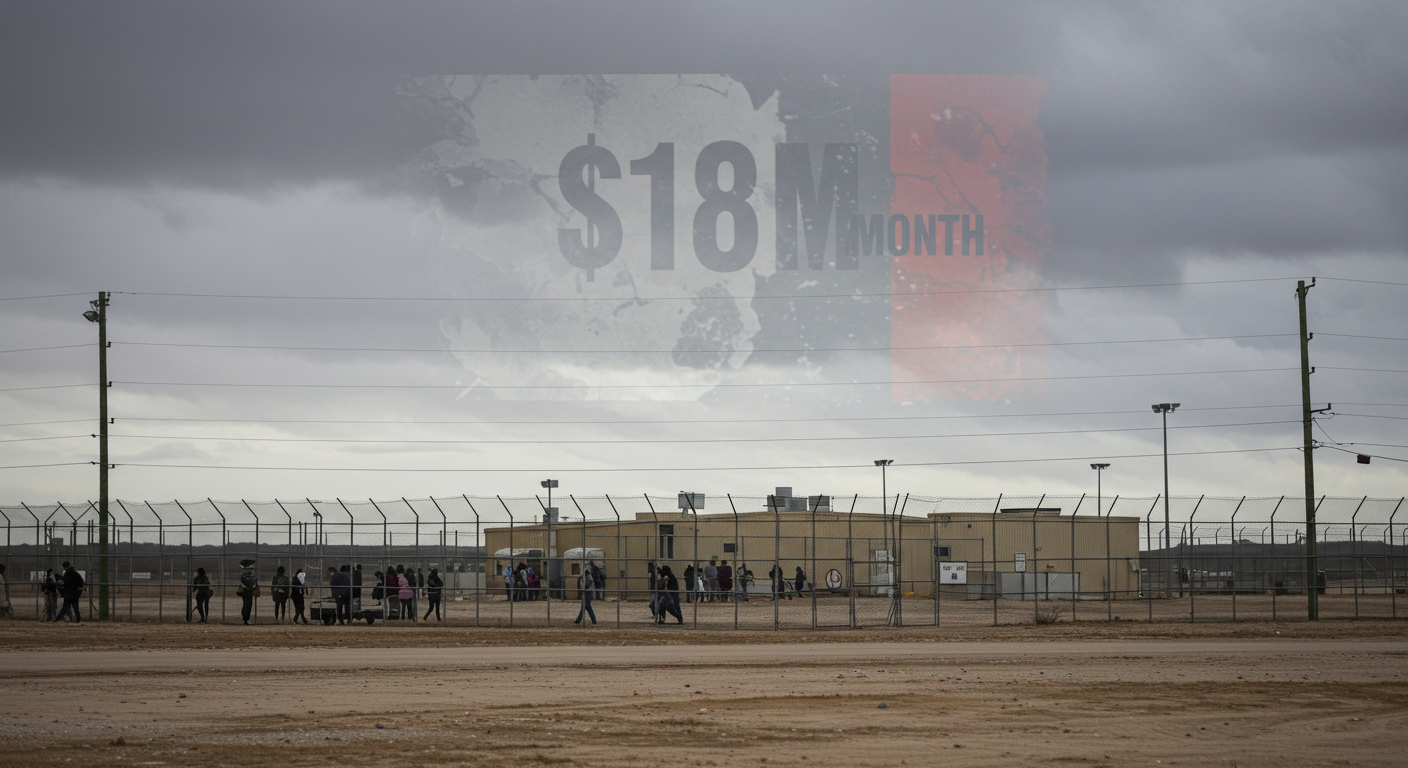The doge hhs migrant housing contract has grabbed headlines for its massive $18 million‑per‑month cost—and an empty Texas shelter that sat unused. This story matters because it touches on government oversight, taxpayer impact, and the lives of vulnerable migrant children.
In this article, we’ll unpack what this contract was, why it failed, who benefited, and what lessons we can learn moving forward.
Timeline of the doge hhs migrant housing contract
2021: HHS awards a sole‑source, emergency contract worth $18M each month to Family Endeavors for a 1,000‑bed “influx care facility” near Pecos, Texas.
March 2024: Facility remains empty yet continues to incur millions in monthly readiness payments.
Feb 2025: DOGE (Department of Government Efficiency) flags the contract as wasteful.
Late Feb–Mar 2025: HHS formally terminates the contract, claiming over $215M annual savings.
Ongoing: FOIA lawsuits, federal investigations, and debates over similar high‑cost migrant housing deals continue.
You Might Also Like: crypto30x.com Gemini
Government goals behind the doge hhs migrant housing contract
DOGE—short for the Department of Government Efficiency—launched in January 2025 to eliminate waste and streamline federal spending.
Influx care facilities are HHS‑run shelters for unaccompanied minors, funded via emergency contracts. These aim to boost capacity quickly but often come with hefty monthly fees to remain “ready” even if unused.
Family Endeavors and its role in the doge hhs migrant housing contract
Family Endeavors is a faith-based nonprofit overseeing migrant and community support services since 2012.
Their income surged from $8.3M in 2020 to $520M in 2023, largely due to the HHS influx care deal. The contract included readiness maintenance—even with no migrants—and facility upkeep for up to 3,000 beds.
Why they failed to deliver
Key factors:
Declining migrant numbers dropped occupancy below 20% by early 2024.
Sole‑source contracting sidelined competitive bidding—even while demand shrank.
Readiness payments mandated monthly upkeep costs whether the site housed migrants or not.
Result: taxpayers paid huge monthly fees for an unused shelter.
Financial impact of the doge hhs migrant housing contract
$18M/month readiness fee—over $215M/year.
When broken down:
~$200M was wasted on idle preparedness.
The remaining covered staffing, utilities, and overhead—even with zero occupancy.
HHS termination reclaimed future costs—but past readiness payments remain unreturned.
You Might Also Like: 5starsstocks.com
Data privacy issues tied to the doge hhs migrant housing contract
DOGE didn’t just cut contracts—it gained access to sensitive HHS systems, including the Unaccompanied Alien Children (UAC) portal.
Although DOGE said they only accessed the portal in “read‑only” mode, the portal held private data on children’s mental health, family details, and trauma histories. This sparked backlash over privacy and ethics.
Broader issues highlighted by the doge hhs migrant housing contract
Other HHS and CBP influx sites in Texas, Arizona, North Carolina, and on military bases also sat mostly empty, costing millions each month.
Some contracts exceeded $68M/month, and DOGE’s work has triggered around $600M in broader federal cuts.
Stakeholder reactions
Migrants
Empty shelters meant migrants stayed longer in overcrowded initial facilities lacking adequate care.
Health and legal services were often delayed or unavailable.
Local Communities
Pecos didn’t get new population or jobs from the idle site—but still hosted maintenance costs.
Family Endeavors faced public scrutiny; CEO defended contract terms and readiness obligations.
Taxpayers
Immediate savings are tangible for future budgets.
Ethical questions remain: pay‑for‑readiness vs active service delivery.
Lessons from the doge hhs migrant housing contract
Contract structure reform: Tie payments to actual usage—not just readiness.
Competitive bidding: Avoid sole-source deals, especially when needs shift.
Greater transparency: FOIA and oversight can curb misuse.
Privacy protections: Limit contract‑holder data access to only what is essential.
Human‑centered care models: Smaller shelters, community integration, and non-profits may offer more empathy and efficiency.
You Might Also Like: invest1now.com Real Estate
FAQ
What is DOGE?
A federal initiative set up in January 2025, aimed at reducing waste and modernizing government spending.
Why was Family Endeavors’ contract terminated?
DOGE discovered the facility had no residents since early 2024, yet cost taxpayers $18M/month. HHS pulled the plug in 2025.
Has any money been returned?
The termination stops future payments—not past ones. Recovery efforts are tied up in audits and potential lawsuits.
Will similar contracts change?
Early signs suggest more occupancy‑based structures, higher scrutiny, and greater public transparency.
Summary of the doge hhs migrant housing contract and what’s next
The doge hhs migrant housing contract became a tale of massive spending with no service delivery. It raised national questions about how we care for migrants, how government contracts work, and how private companies access sensitive data.
We can learn from this by demanding performance‑based payments, open bidding, strong oversight, and data safeguards.
What are your thoughts? Could smaller scale, community-based shelters be a better solution? Let us know—and feel free to share this article if you found it useful.

